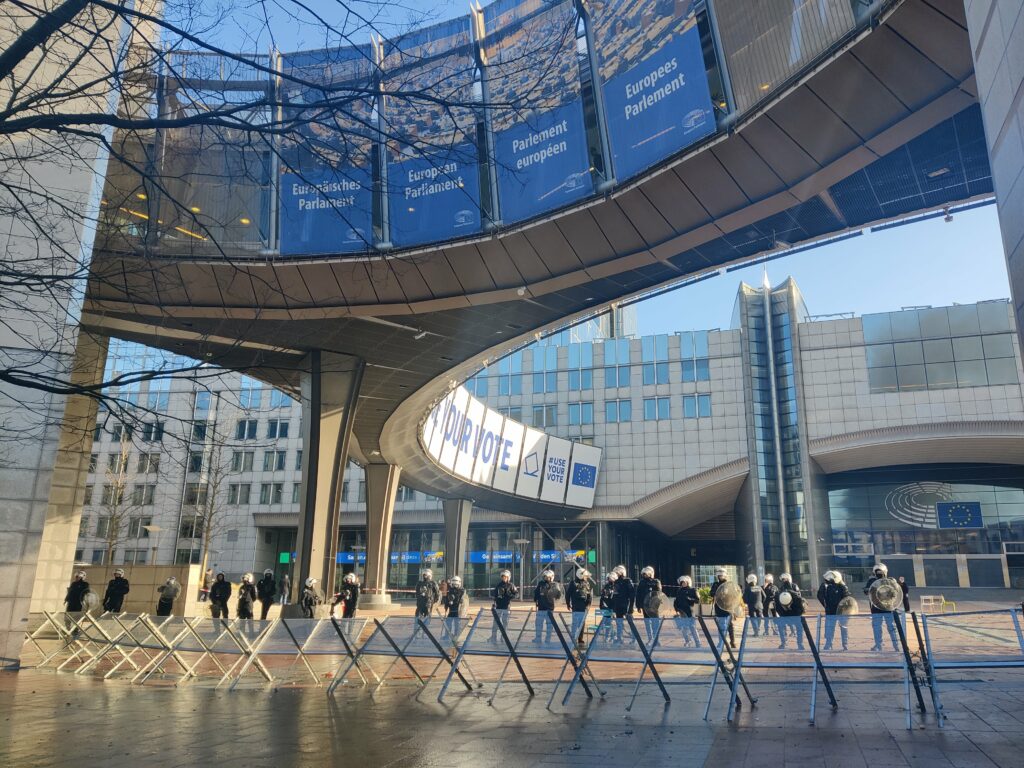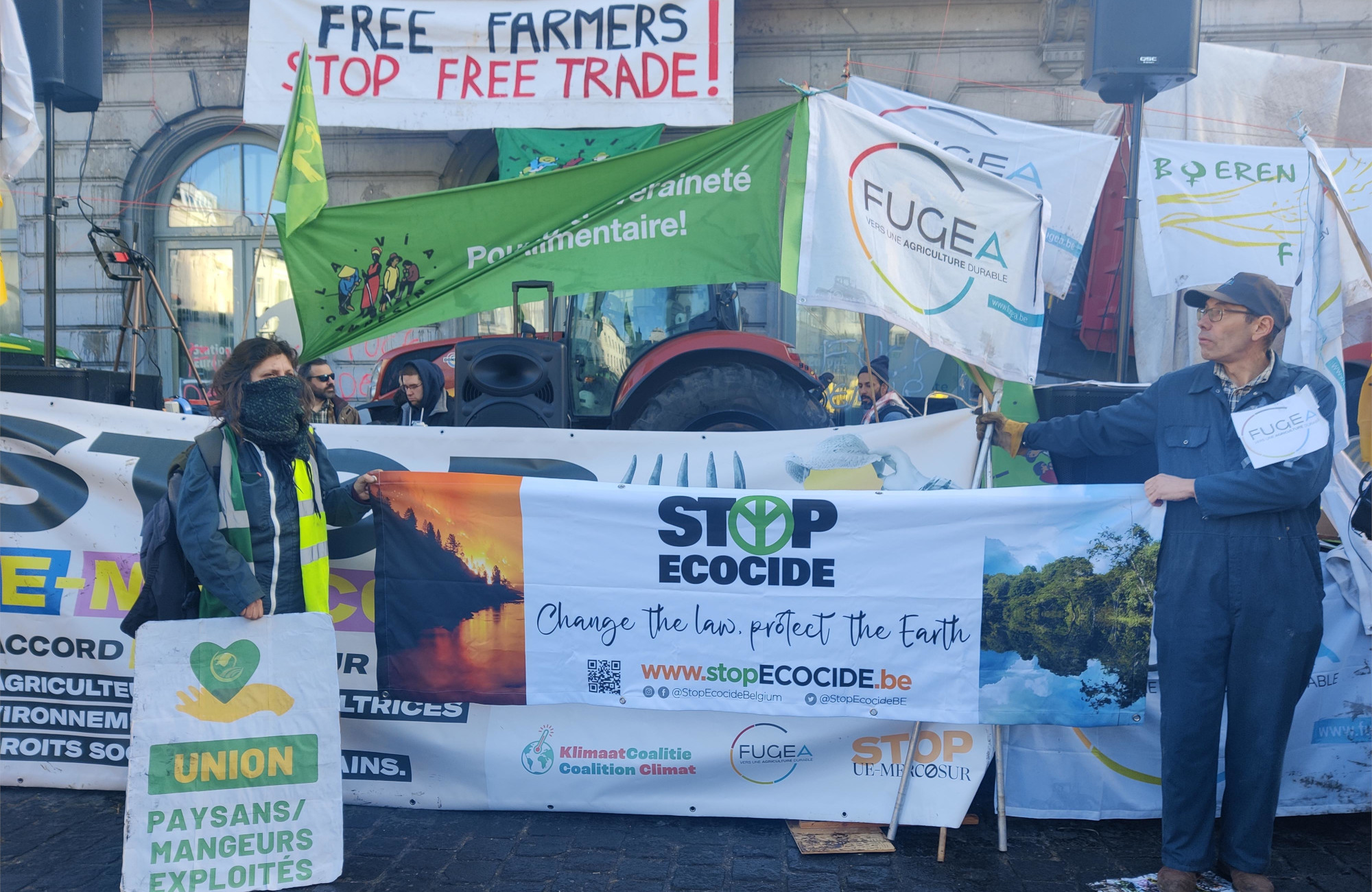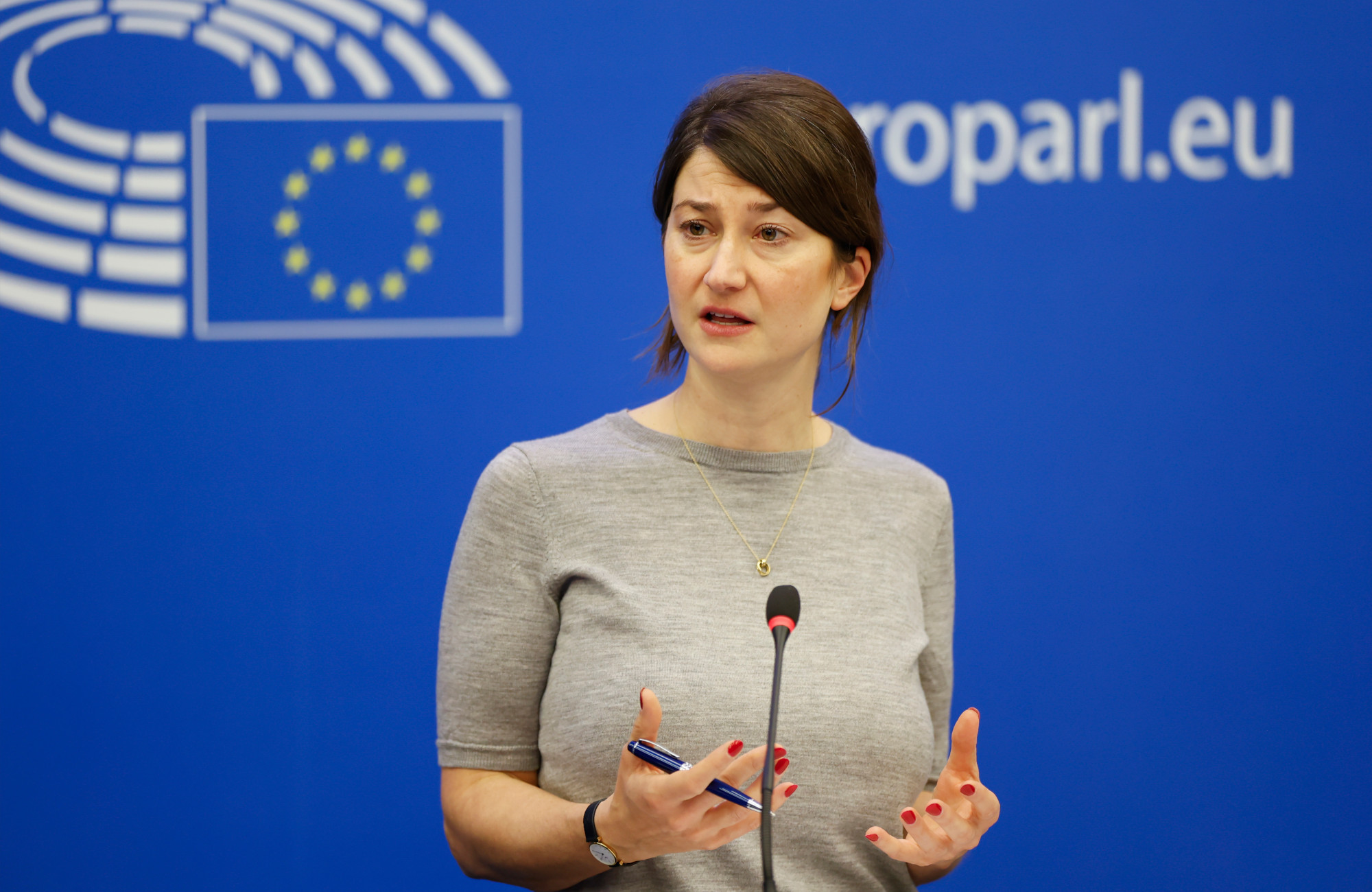Europe is the fastest warming continent in the world, with temperatures increasing at twice the global rate. New analysis from the European Environment Agency (EEA) warns that Europe’s food systems are unprepared for the rapidly growing risks of climate-induced disasters; megadroughts, heatwaves, and new weather patterns are projected to cause major shocks to food security, financial markets, and supply chains.
Such warnings should have raised alarm bells in Brussels and Strasbourg. They could have led to discussions about how to overcome three urgent and interlinked challenges: helping farmers become resilient to increasingly erratic weather, ensuring that the nearly 500 million Europeans can eat affordable and nutritious food, and doubling up efforts to make food systems become more sustainable.
Instead, European Parliament voted on the 24th April to loosen the environmental standards in the reformed Common Agricultural Policy (CAP). This is despite criticism from two of the four EU-level farming organisations consulted on the changes by the European Commission. If approved by the European Council, the CAP will no longer require nor reward farmers for “respecting EU standards on good agricultural and environmental conditions of land”.
These requirements were supposed to address biodiversity losses and lessen the impacts of agriculture on nature and the environment. They followed criticism, including from the European Court of Auditors, that farm emissions have not decreased significantly since 2010, despite billions of euros in subsidies.
The move was the latest in a long series of rollbacks in Europe. In recent months, the European Union’s executive body shelved plans to reduce the use of toxic pesticides, stalled a framework to make food systems greener, fairer, and healthier, and back-pedalled on promises to improve animal welfare.
Meanwhile, the non-profit ARC2020 obtained a leaked internal draft of the European Council’s vision for the next five years, and it did not mention a single goal on sustainability or environment.
The centre-right European People’s Party (EPP), the largest group in the Parliament and which Commission president Ursula von der Leyen belongs to, has been the biggest cheerleader of the backtracking, which is not limited to the European level.
Across the 27-member union, national leaders have also cancelled, postponed, or diluted green ambitions, and in almost every instance, justified the U-turns by pointing to the recent farmers’ protests that have roiled many of the continent’s capital cities.
In late March, Belgian Agriculture Minister David Clarinval chaired a meeting where a plan for nature protection was indefinitely postponed. After the meeting, Deutsche Welle reported that Clarinval said “we have listened to our farmers and we have taken swift action to address their concerns.”
Short-sighted response
The quick capitulation is not a surprise. Protests have been widespread, with farmers blocking motorways and taking over city centres. Some events turned violent, such as clashes between police officers and protesters in Brussels and Warsaw. Buildings were sprayed with manure and bales of hay were set alight in France, and a cabinet minister had to flee by boat with his wife while police physically fought farmers in Germany.
What is surprising, however, is how the protests have been framed (as a rebellion against environmental regulations) and how narrow the policy responses have been (dismantling green policies but not much else).
This is an extremely short-sighted and incomplete response to farmer frustration and anger. It does a disservice to the future of European agriculture, which both policymakers and farm lobbies claim to care so much about.
The protests have consistently been driven by local contexts, such as the fuel subsidy cut in Germany, the influx of cheap grain from Ukraine in Poland, and the EU-Mercosur trade deal in Brussels. But there are still common themes.
Farmers say they want fair income, less bureaucracy, a just distribution of subsidies, and more support. They oppose trade deals that put European farmers at a disadvantage. Yes, there are farmers who want to continue using pesticides and fertilisers, keep animal welfare as it is, and refuse to set aside land to protect biodiversity. But there are also farmers whose demands have nothing to do with rolling back environmental provisions.

An analysis by Carbon Brief of key demands from farmer groups in 12 countries found about a third of the concerns were directly related to climate change and/or greenhouse gas emissions, a third were related to biodiversity/conservation, and a third had no relation at all to green issues.
A recent survey of more than 600 French farmers also showed they are not a monolithic group opposed to climate action. Respondents said climate change is a top concern and 62% said ecological transition is “a necessity”.
Small scale farmers in Italy, the Netherlands, Belgium, and Germany that I have been speaking to for Lighthouse Reports have expressed similar sentiments, saying they are already witnessing climate impacts.
An Italian farmer called the Commission’s decision to loosen environmental requirements under the CAP “completely stupid.”
“Climate change is there. This is not a political opinion. We are not environmentalists. We are peasants. But we see that it’s costly to work against nature.”
The easy way out
How is it then that policymakers at both European and national levels do not appear to be hearing from such farmers? Is it because they seem to listen only to Copa-Cogeca, Europe’s oldest, biggest, and most powerful farming lobby?
Established in 1959 at the inception of the Common Agricultural Policy (CAP), Copa-Cogeca’s members include many of the EU’s major national farm unions, allowing it to proclaim itself the voice of European farmers.
It has close relationships with key EU institutions at the heart of agricultural policy-making and is the only group invited to meet and talk to the president of the Council before every meeting of EU agricultural ministers.
Last year Lighthouse Reports spent months investigating Copa-Cogeca with media partners in Brussels, Romania, Poland, Spain, Netherlands, and Denmark, conducting nearly 120 interviews, as well as a survey of 50 Copa-Cogeca affiliates. The project exposed how the union does not accurately represent most European farmers’ opinions, despite claims to the contrary.
Members and non-members are both frustrated and dissatisfied with the union’s decisions and stances on multiple issues, which include steadfastly opposing attempts to make European agriculture greener and fairer. There is also widespread concern that the lobby group prioritises the interests of large-scale farmers over small-scale food producers, who make up a majority of farmers in Europe.
Yet politicians have elected to listen only to those who oppose progress on green issues because this is easier than tackling long-standing systemic issues that force farmers to rely on subsidies, turn to agrochemicals, and accept unfair prices.
Farmers have had to operate within a system that rewards bigger, more intensive farms, that focuses on efficiency and yield at the expense of human and planetary health, and that consolidates power and profits in the hands of the few.
They now face difficulties with increasingly erratic weather patterns as well, on top of a war between two agricultural giants that has increased the cost of inputs such as feed and fertiliser.
This is why European farming is in crisis. Despite agriculture being the EU’s largest budget item, disbursing tens of billions of public money a year, the bloc has lost three million farmers – 800 every day – between 2010 and 2020. The average age of a European farmer is 57. As long as these underlying problems remain unaddressed, the grievances – and the protests – will not disappear.
Farmers are already struggling with high levels of stress, anxiety, and suicides. It is crucial that climate policies are implemented in a way that does not further impoverish them, but giving up green ambitions is not a solution.
Worsening climate change will exacerbate farmers’ woes. That is the ultimate tragedy. By ignoring the transformative policies that are needed (like reforming the CAP) in favour of short-term wins for big business, policymakers may doom most farmers’ long-term future.
Thin Lei Win is Lead Reporter for the Food Systems Newsroom of Lighthouse Reports, a collaborative journalism outlet focusing on public interest investigations.
Read more:

- Opinion
- By Steve Trent
- 13 March, 2024






